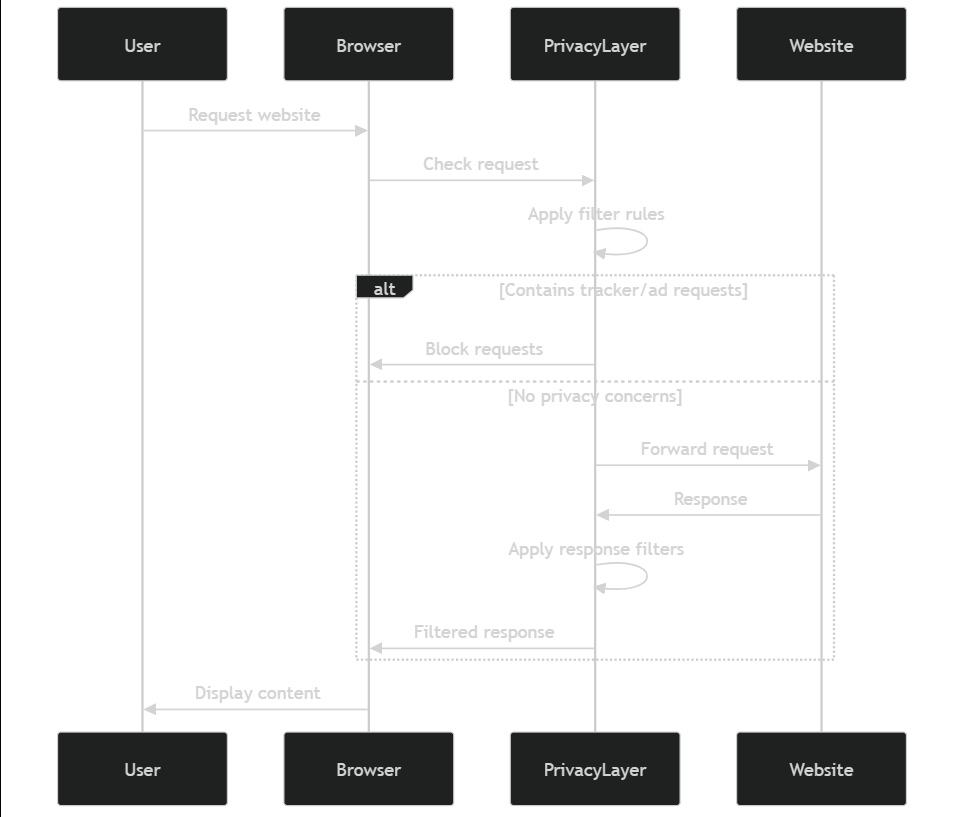Privacy Layer
Privacy Layer


Privacy Profiles
Storage Isolation
Network Isolation
Cryptographic Isolation
Tracker Blocking
Filter Lists
Blocking Scope
Performance
Fingerprint Defense
Canvas Fingerprinting
WebGL Fingerprinting
Audio Context Fingerprinting
Font Fingerprinting
Hardware Fingerprinting
Cookie Management
Isolation
Policies
DNS Privacy
DNS over HTTPS (DoH)
DNS Providers
VPN Integration
Referrer Policy
Policies
Benefits
WebRTC Leak Prevention
HTTPS Enforcement
Last updated